Poland
participants
The EGiA focus group was organised in order to challenge and analyse the knowledge of the Polish youth regarding the mobility opportunities available for them as well as their awareness about their rights as EU citizens. The data were collected from the mobile and non-mobile students.
The focus group was started with integration, a names game, and a little introduction about ESN, who we are, what we are doing for Erasmus students at the University of Technology.
Then we discussed different forms of mobility. The most common mobility known by students was the Erasmus programme including internships. People didn't have the idea that it is possible to go abroad as a volunteer for free to another country. There was a group of girls from architecture faculty that were asking a lot of questions about it to a guy who was an active member of ESN Gdańsk and had a friend who went to Strasbourg as a volunteer. Mostly, the destination was the most important and first factor that impacts the decisions of students.
Later we started the topic of European citizens rights. Participats of the focus group heard about the European Parliament, that they can vote in European elections, but they did not hear how and when they can do that. Participants mostly talked about travelling through European countries and that it is easier to travel as a European citizen.
Regarding barriers of mobility, first answers raised the issue of money. According to participants, money not only allow students to have mobility experiences but it also give young people the feeling of security in case something happened. People agreed and raised later the issue of language as well. It is really hard to make first steps in the foreign country without knowing the local language.
Each participant were then given post-it notes to write down their thought on impact of mobility programmes. After 2 minutes we started reading their answers outloud. The most popular answer was that mobility impacts our job opportunities. In a few cases the group mentioned that they believe Erasmus can impact their language skills. Moreover, the group highlighted that some soft skills such as communication can be greatly improved while on Erasmus.
The whole group agreed that such opportunities as Erasmus are very important. The discussion continued as the group talked about the role of it. Some people mentioned that it gives young people the possibility to understand other cultures which they view as an essential part of functioning properly in the European Union. The other role the group thought about was tightening the relationships between countries and universities that can allow collaborations later on. Besides the educational aspect, during Erasmus young people make connections with other habitants of the European Union. These relationships not only teach us about cultural differences, but can come in handy in the future in the aspect of job opportunities.
At the end participants discussed the issue of future European elections. They agreed that the thing that would motivate them to vote is mostly the access to information about such elections.
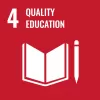
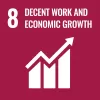
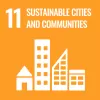
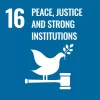
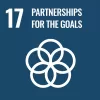
This activity is part of the project:
Erasmus Generation in Action (EGiA)